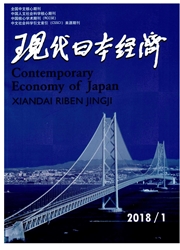

 中文摘要:
中文摘要:
商会和行业协会作为一种“中间性组织”,是日本战后经济体制的重要组成部分。在日本实现经济高速增长的过程中,商会和行业协会不仅通过形成“有组织的市场”对资源进行合理、有效的配置,而且在弥补市场经济的缺陷和不足以及协助国家进行经济战略管理和制定、实施产业政策等方面,发挥了政府、企业和市场不可替代的作用。
 英文摘要:
英文摘要:
Chambers of commerce and trade associations, as types of "intermediate organizations," have been important component parts of the economic system of the post-war Japan. In the course of the country's fast economic growth, chambers of commerce and trade associations have not only helped realize a more rational and effective distribution of resources through forming an "organized market," but also played a role that is irreplaceable by either government, business or market in such fields as remedying the defects of market economy and helping the government with formulating and managing economic strategies and implementing industrial policies.
 同期刊论文项目
同期刊论文项目
 同项目期刊论文
同项目期刊论文
 期刊信息
期刊信息
